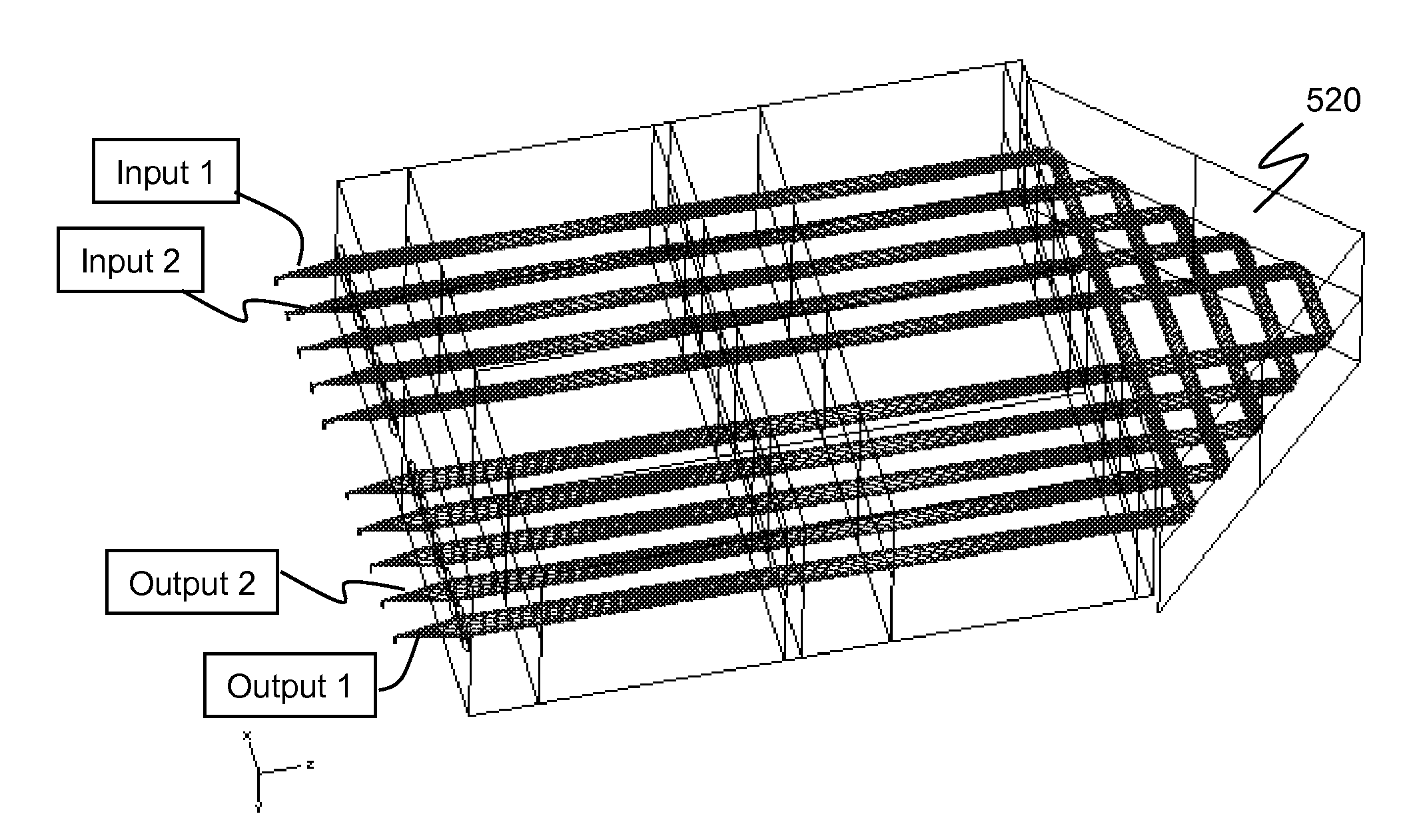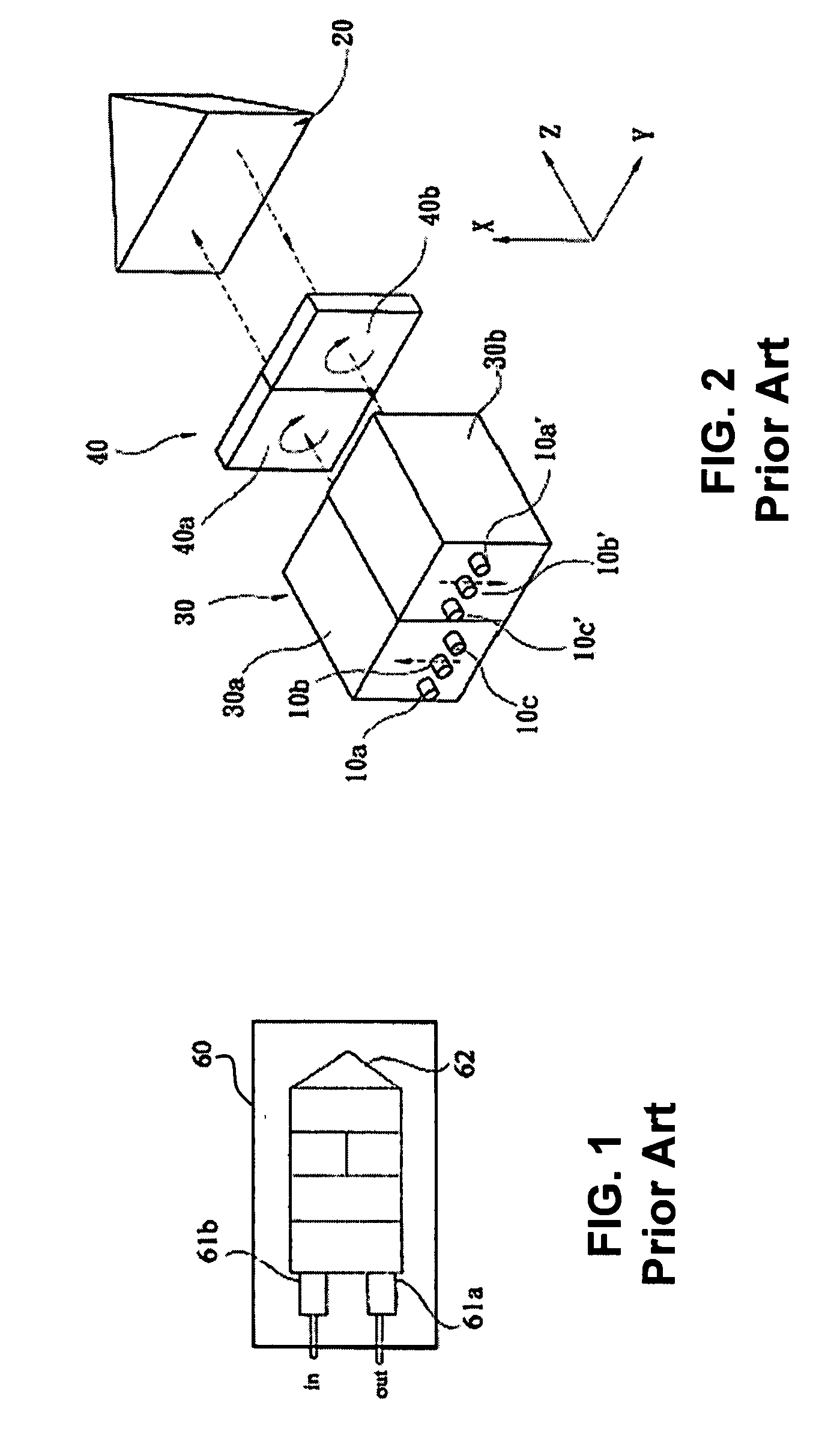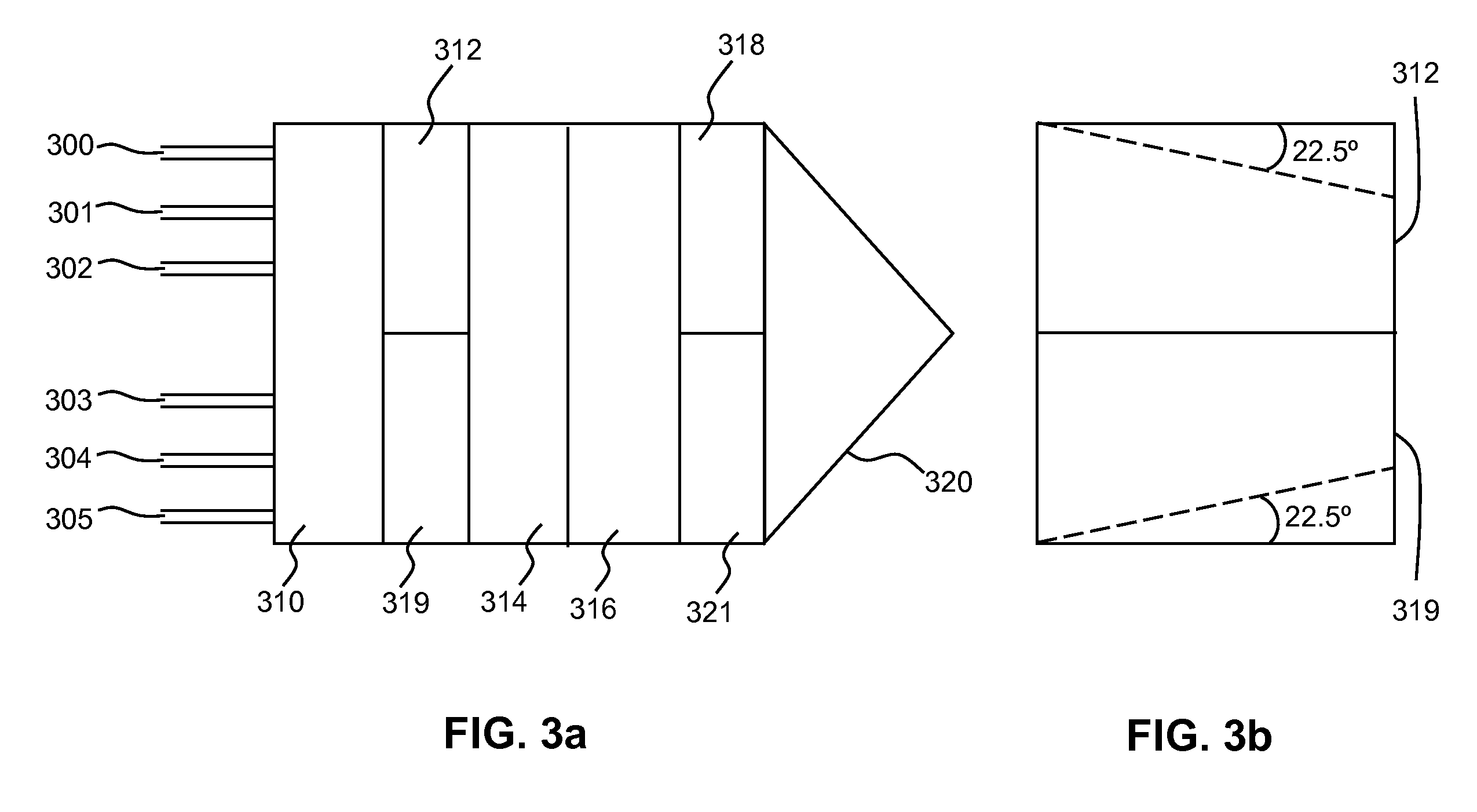Multi-Stage optical Isolator
a multi-stage, optical isolator technology, applied in the direction of generator/motor, polarizing element, instrument, etc., can solve the problems of requiring nearly double the number of optical components, bulky prior art multi-stage devices, and inability to consider practical polarization-dependent designs
- Summary
- Abstract
- Description
- Claims
- Application Information
AI Technical Summary
Benefits of technology
Problems solved by technology
Method used
Image
Examples
Embodiment Construction
[0036]Throughout this specification the term polarization rotator is used to denote an element which physically rotates the polarization of a beam propagating therethrough; this is exemplified by a Faraday rotator which is a non-reciprocal rotator; however the term polarization rotator is used hereafter and is found in other prior art patents to denote a waveplate which relatively retards a beam of light passing therethrough with respect to another beam having the effect of being a reciprocal rotating element since the linear polarization state between two beams where only one passes through a waveplate “appears” to be relatively rotated with respect to the other.
[0037]Turning now to FIG. 1, a prior art double stage isolator is shown. The isolator has a birefringent crystal 12 a Faraday (non-reciprocal) rotator 14, and a birefringent crystal 18 is disposed adjacent waveplates 16a and 16b for combining the two beams of light in the transmitting non-reflecting direction wherein two gr...
PUM
 Login to View More
Login to View More Abstract
Description
Claims
Application Information
 Login to View More
Login to View More - R&D
- Intellectual Property
- Life Sciences
- Materials
- Tech Scout
- Unparalleled Data Quality
- Higher Quality Content
- 60% Fewer Hallucinations
Browse by: Latest US Patents, China's latest patents, Technical Efficacy Thesaurus, Application Domain, Technology Topic, Popular Technical Reports.
© 2025 PatSnap. All rights reserved.Legal|Privacy policy|Modern Slavery Act Transparency Statement|Sitemap|About US| Contact US: help@patsnap.com



